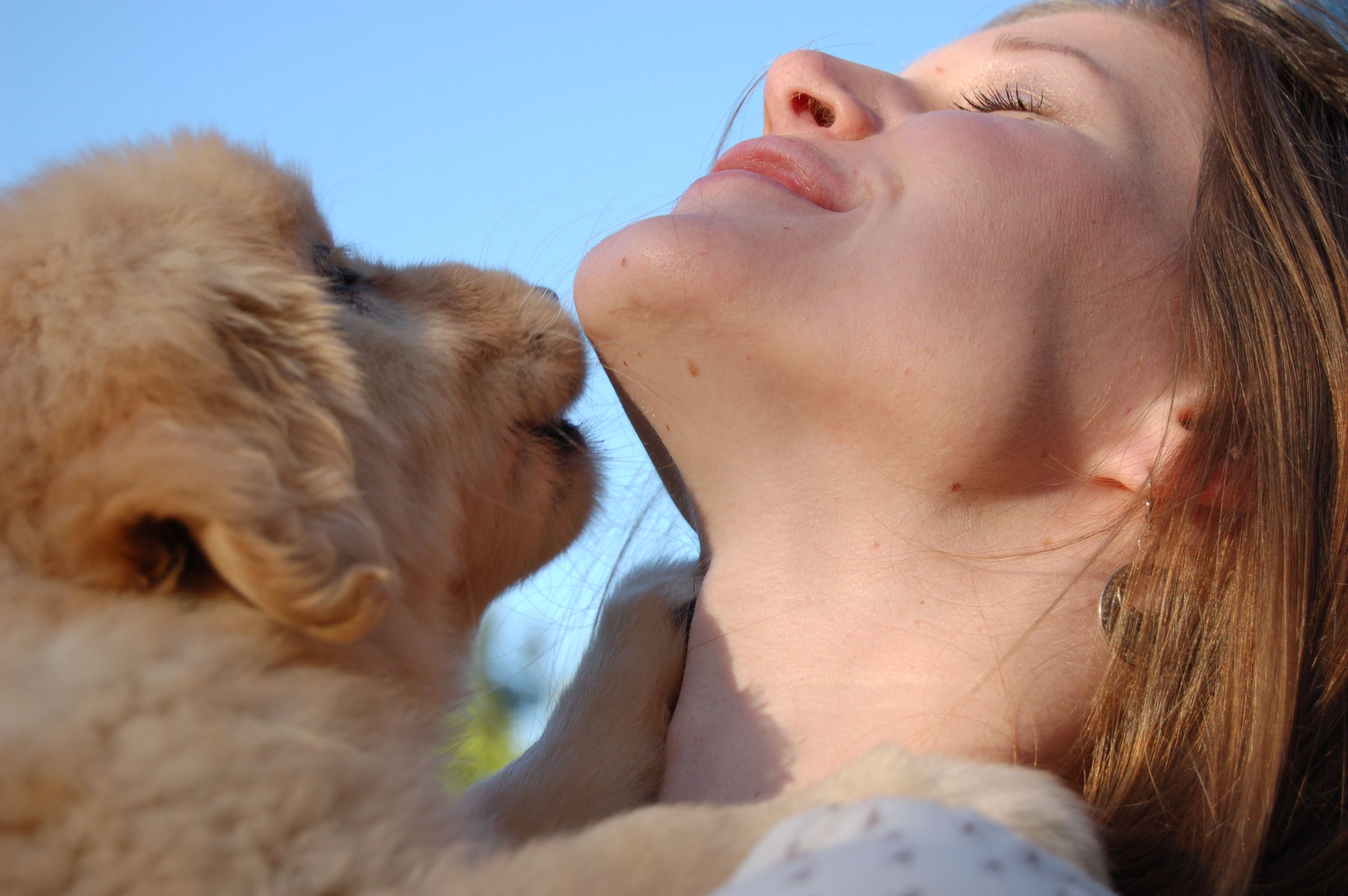Have you ever felt the tang of saying yes when you really wanted to say no? Common responses of people pleasers go something like this: "Sure, I'd be happy to watch your dog for the weekend." "Absolutely, you can count on me for that fundraiser." "No problem—I'll help decorate the kids' lockers for the big game!" "Sure, I'll help you finish that project and stay at the office until it's done!"
It's so easy to say yes, isn't it? Before we even think about our own needs, agreement, and caring responses slide off our tongues.
Estimated reading time: 4 minutes
 But do you agree with someone and then regret it?
But do you agree with someone and then regret it?
It's true, we are creatures of habit. And if you're in the habit of being a people pleaser, it's a habit you may be looking to break up with!
Why Are We People-Pleasers?
Often people-pleasers are well-liked because they are so easy to be around (especially for people who like to be right because pleasers generally avoid conflict) and pleasers love giving, too, so they are usually huge givers with big hearts! And do you also know people who take advantage of their kindness?
Related reading: "What's Good About People-Pleasers?"
Pleasing others works ... until it doesn't.
Growing up, many of us learned that the safest and fastest way to be liked and to belong was to comply. We just couldn't say no because we loved seeing others happy. We discovered that we could make friends, avoid conflict, and dodge rejection through compliance, we just couldn't say no. The relief by avoiding conflict was addicting. But at what cost? Does compliance contribute to inner peace, cultivate wholeness in relationships, or energize families and organizations—or not?
According to Webster's dictionary, compliance is "the act or process of complying to a desire, demand, proposal, or regimen ... a disposition to yield to others." This definition says nothing about free will or choice. So what does comply mean? We put others' wishes above our own.
Related reading: "Why You Need to Replace People Pleasing with Kindness."
Imperative for People-Pleasers: Self-Awareness and Learning to Say No
We can say no. We are not the extension of someone else, nor are we obligated to agree with them. But people-pleasing and complying with others requires us to go along with others instead of listening to and honoring our own values, needs, desires, and goals. In both the short and long term, giving ourselves up cannot create a win for any of the people involved. Whenever we put someone else's will or desires above our own or we neglect to set boundaries, we have betrayed the inner authority that keeps us whole. I call this betrayal a felony against self.
Years ago, I was adept at reluctant agreement. The majority of my actions revolved around keeping the peace and pleasing others. I was a serial people-pleaser! The only time I felt relaxed and truly free was when I was alone with no one else's needs pulling at me.
Why?
Because I couldn't say no to even the most basic request and I existed to meet the needs of others. Plus, I was uncomfortable if anyone was unhappy; my full-time job was to make everyone okay. What an impossibility!
I was miserable. In fact, I felt like I was dying inside. I knew there had to be a better way. There was: let my true self shine!
Self-awareness is a precursor for all change.
Without understanding ourselves better, it's difficult to shift behaviors for the better. Awareness poked through the heavy fog of habit for me one day while I was struggling to keep my head above water. Here are some of my insights:
- Whenever I went against my truth, my gut turned to knots.
- I realized that allowing the people around me to always have their way instead of voicing what I wanted was actually denying them opportunities to love and respect me. And I was the one responsible for that outcome, not them!
- If I neglected to check in with myself and acknowledge my feelings, doubt, and confusion drowned out clarity.
- Whenever I said yes when I wanted to say no, inner unrest and resentment built up inside of me.
- When I did listen and act on my inner voice, my intuition always steered me correctly and the results were amazing!
Once I started listening to the pangs of hunger to BE within me, I slowly began declining requests with the safest people first. Then as my muscles grew and it was easier to say no, I'd say no whenever it wasn't a resounding "yes!" Guess what happened? I felt more energetic and alive. My confidence increased. People actually liked the version of myself that was coming out more and more. And the truer I was to myself, the happier I became.
Now, this change didn't mean that I wasn't kind and considerate. I was—even more so because I had so much energy and joy.
Yet, it was a little scary too because I had spent so much time pleasing others that I feared people's reactions. As I began paying closer attention to my habit of acquiescing, some unusual perceptions came into focus. And when I followed the breadcrumbs, they all led back to the same destination: my unhappiness and my inner conflict. My happiness meter went down whenever I gave up myself.
Even after learning to listen, I still had to figure out clearly what I wanted and then learn how to say no. Being true to yourself requires self-awareness, emotional fitness, and skills like setting boundaries that stretch us out of our comfort zone.
Without discomfort, we don't grow.

Symptoms We Are Compliant and Not in Full Agreement
I once heard a description of passive-aggressive behavior that made me laugh. It's of a cute little puppy wagging its tail and licking you while it pees on your lap! Ha!
Understanding how my feelings and reactions were linked to resentment was a riddle that mirrored this sweet little puppy story. I was sweet... yet saying yes when I really wanted to say no also had its ramifications much of the time. Perhaps some of my observations and insights will be helpful to you:
Symptom #1: Resentment
My observations: If I went against what I really wanted for myself in order to please someone else, I resented both the decision and the person.
Ask yourself: Am I feeling resentment about this decision? When we give up ourselves on any level (emotionally, mentally, physically, psychologically, or spiritually) through conceding to the will of others, we will often resent it and find ways to prove we cannot be controlled. Resentment signals that we have overstepped healthy boundaries and we have said yes when we wanted to say no.
Symptom #2: Resistance (inverted autonomy)
My observations: Even though I acceded, I would say no in indirect ways. Here are a few of the ways I pinpointed: I procrastinated, made excuses, did a lousy job, forgot meeting times, got sick, dragged out the commitment, complained frequently, was passive in my participation, or backed out altogether.
Ask yourself: Am I resisting this commitment? Failing to show up in our daily activities and commitments often reveals that our choice was not made freely and/or we are not in full agreement with what we've committed to.
Symptom #3: Withholding My Best
My observations: When I consented (but didn't really agree), I did not give my best efforts, and most often I withheld my greatest assets and talents—trying to maintain power. When I was in full agreement with the decision or commitment, I gave wholeheartedly.
Ask yourself: Am I withholding my best? When we sense ourselves holding back, it may indicate compromise and/or that we're not fully committed. Just yesterday, I was coaching a woman who told me that she withheld love from her husband when she didn't get what she wanted. This behavior originated in her giving herself up at an earlier time and then blaming her husband for "taking advantage" of her kind-heartedness.
Symptom #4: Blaming Others
My observations: Blame was a common theme whenever I complied. But when I followed my heart, I wasn't looking for people to blame.
Ask yourself: Am I blaming other people? Blaming can be a sign that we said yes when we wanted to say no and then feel like a victim of our own felony against self. When our decisions and actions are aligned with our truth and core values, blame is usually not an issue.
Symptom #5: A Lack of Accountability
My observations: Whenever I surrendered my will to someone else through compliance, I felt I wasn't accountable for my actions in the same way as if I had made my choice freely. I had a sense of not being responsible for outcomes because I could blame others, right? I wanted to say no, but they "made" me say yes.
Ask yourself: Am I feeling a lack of accountability for quality, communication, decisions, or outcomes? When we act freely on our decisions and they are aligned with our values and personal well-being, we take full responsibility for the quality of our work and relationships while also accepting accountability for our mistakes.
Personal responsibility increases with ownership.
Confidence and personal accountability increase when you set healthy boundaries.
Let your feelings be your guide. The next time you agree to do something and then feel resentment, resistance, withholding, blaming, or a lack of accountability, ask yourself: Is my heart in this decision, or am I giving up something important to me?
As we learn about these clues that we are being compliant, they can teach us how to live from a more authentic place. When someone requests something from us, we need to first check in to see if it is in alignment with our values and resources. If I agree to babysit your kids when I am exhausted and sleep-deprived, I am putting your needs above my own, which isn't loving to either of us. If I act on a committee but my heart isn't in it or I don't believe in the cause, I will at best be a passive spectator and at worst sabotage the success of the cause.
Related reading: "Why People Pleasing Damages Relationships—and What to Do About it!"
A Common Pleaser Strategy: The Cost of Neutral
As Seth Godin said in his blog The Cost of Neutral, "Not adding value is the same as taking it away."
When we agree to stay late at work but have to cancel a special date with our spouse or a good friend, the sacrifice may make us feel entitled to take long lunch breaks and cut out early from work without authorization. When we give from a place of sacrifice without considering our needs, we will usually have "pay-back" agendas simmering in our mind. (Granted, you may not be conscious of these undercurrents until you take time to observe yourself more carefully.)
Common Drawbacks of Compliance and People Pleasing
There are scores of disadvantages that we rarely identify as people pleasers. They are like a silent disease that corrodes our sense of self. Here are some of the most common.
- Loss of self-esteem and self-respect
- Silencing your voice
- Decreased passion and excitement for life
- Worry, discouragement, and depression
- Monotony and/or distance in relationships
- Resentment and bitterness
- Exhaustion from over-giving
- Overwhelm and internal conflict
- Chronically late (who can be on time when you can't say no!)
- Don't feel heard or seen for who you are
- Forfeit of goals and dreams

The Benefits of Honesty through Personal Truth-Telling
And how do we and others benefit from our honesty, by setting healthy boundaries, and forthrightness without complying?
Genuine cooperation, ease, creativity, and synergy with others. When we give from a free place inside ourselves, then cohesive, trustworthy, thriving relationships are possible. We can fully cooperate when we listen and act on our own behalf knowing that it is okay to say no.
This openness doesn't mean that we're going to get what we want every time. However, it does mean that we need to know what we want and what is important to us and be prepared to honor it.
And of course, we sometimes choose to give when it's inconvenient or demands greater effort or isn't perhaps our burning desire—but we care enough for ourselves and others so that giving in that moment IS our truth, not compliance. This choice is made from a place of emotional maturity. We avoid committing a felony against ourselves while contributing to the greater whole. Then we can say yes wholeheartedly and giving our greatest value.
As we learn to say no when appropriate, set healthy boundaries, and give from an overflowing heart rather than from the strain of over-giving, the quality of our life and our relationships goes up—along with our confidence and self-esteem!
If you'd like to learn more about how to stop being a people pleaser from an ex-pleaser, here are other possible resources:
"Why You Should Stop Being a People Pleaser"
Be gentle with yourself.
It's difficult to change without knowing how.
Even if we really want to say no, the old patterns are well-oiled with habitual emotions. We might try harder, but most often we're unsuccessful without new skills and perspectives.
That's why I created the online course "Healthy Boundaries, Happy Life."
If you're ready to start reclaiming your time, your life, and your personal power, try it today!








